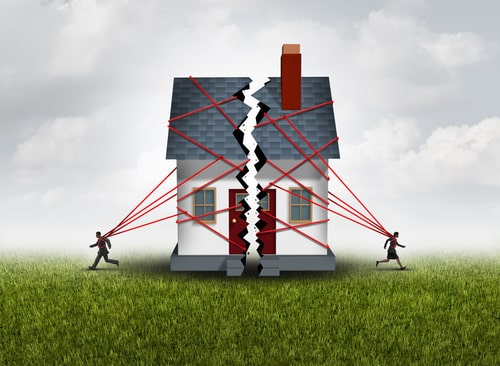Who Gets the House in the Divorce?
 Splitting up marital assets is one of many factors a court will consider during divorce proceedings. The marital home is one such asset that carefully considers who receives it when the divorce is finalized. As Illinois is an equitable distribution state, splitting a house is not so simple. A consultation with a divorce attorney can help you better understand how the division of marital assets works and how compromise can go a long way.
Splitting up marital assets is one of many factors a court will consider during divorce proceedings. The marital home is one such asset that carefully considers who receives it when the divorce is finalized. As Illinois is an equitable distribution state, splitting a house is not so simple. A consultation with a divorce attorney can help you better understand how the division of marital assets works and how compromise can go a long way.
How is the Marital Home Split Between Spouses?
No surefire rule automatically awards the marital home to one spouse over the other. Typically, for one spouse to receive the home, it would take compensation to the other spouse to make up for their share of the house. If both spouses want the home, it will come down to a judge's discretion on how best to divide it. Another factor that may help in determining who gets the home is usually dependent on if the couple has children. The parent who receives most parenting time for their minor children will likely receive the house.
Factors For Determining The Marital House Split
A judge will look at many things before deciding who receives which assets in a divorce. Each party's current and future needs are a significant factor in a judge's decision. Additional factors include:
- The contribution to the marital estate made by both spouses
- Who hid or wasted marital assets, if applicable
- The property's value
- Marriage duration
- Each spouse's current economic circumstances
- Prior financial obligations, such as a previous marriage
- Premarital and post-marital agreements
- The health and mental well-being of each party
- The split in parental responsibilities
- Spousal maintenance costs
- Earning potential of each party
- Each marital asset's tax consequences
A home purchased before the marriage by one spouse may have the right to the home. It may then be considered personal property, as opposed to marital property, which gives legal rights to that spouse over the house. An exception to this could be if the non-owner spouse contributes monetarily to the home on things such as mortgage, repairs, or renovations. Then, the court could see it as a commingled asset and, therefore, label it as a marital asset subject to division.
Contact a DuPage County, IL Divorce Attorney
Illinois property division is subject to a fair and equitable split for both parties. A Hinsdale, IL divorce lawyer can help prepare you for court and answer any questions you may have during the divorce proceedings. Contact the Law Office of Martoccio & Martoccio at 630-920-8855 to set up an appointment and receive a free consultation.

















